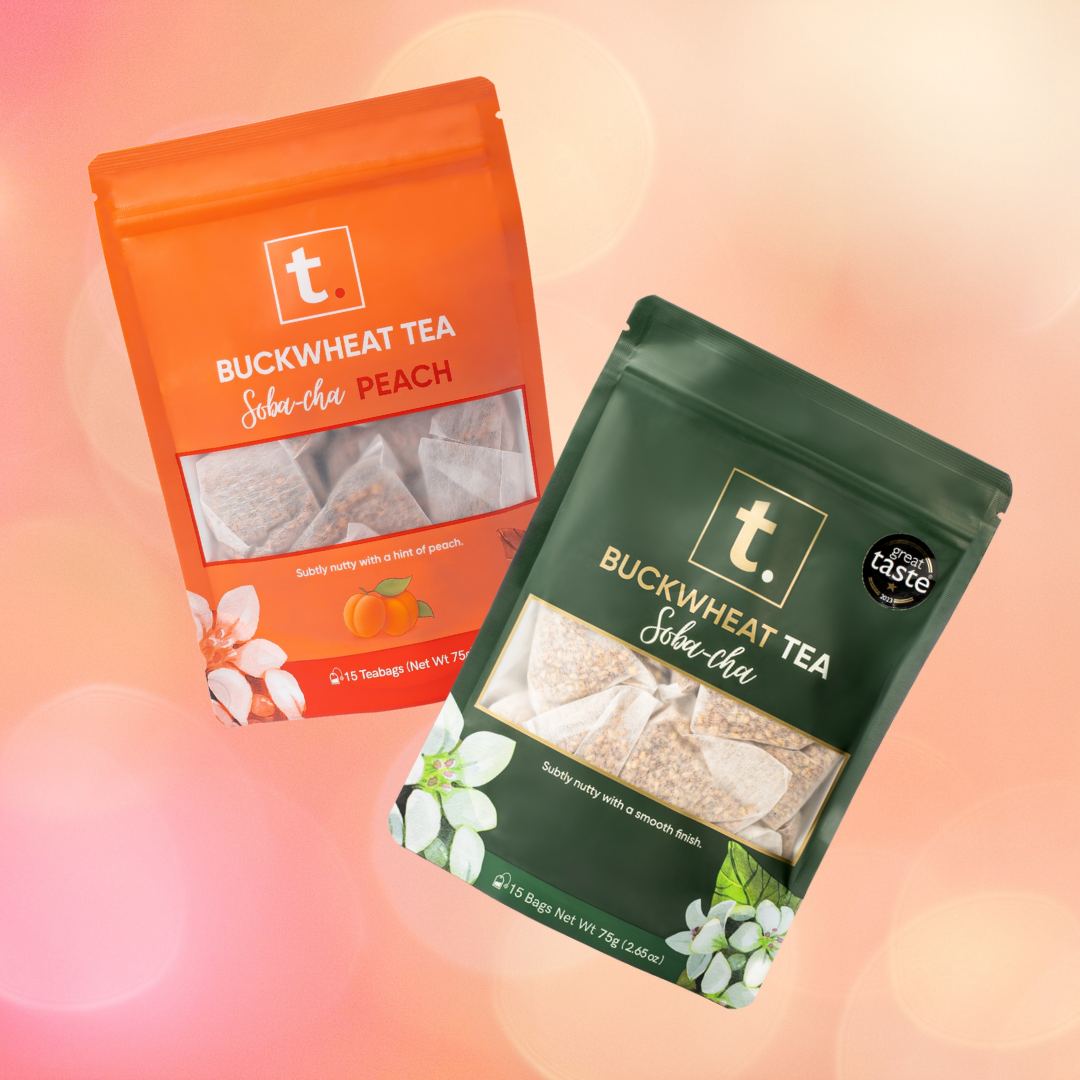
Buckwheat tea, also known as soba-cha, is a caffeine-free tea made from roasted buckwheat kernels. It has a subtly nutty and delicately sweet flavour, and is popular in East Asia.
Many people drink buckwheat tea because of its delicious flavour, and also, to reap its many health benefits!
Here we look briefly at the benefits of the tea as well as how often one should drink buckwheat tea (and how much), to start noticing a difference.
Buckwheat tea contains several vitamins and antioxidants
Buckwheat tea is made out of ‘tartary’ buckwheat, which contains 100 times more of a powerful antioxidant called "rutin" compared to common buckwheat.
Rutin helps strengthen blood vessels and improve blood circulation, and is also effective in improving high blood pressure.
The tea is also rich in minerals like vitamin B, magnesium, potassium, and iron, and can be helpful for high blood pressure as well as help with high blood sugar levels.
Interestingly, rutin has the effect of helping the body's absorption of vitamin C, which is good for your skin, overall immunity, and energy levels. We therefore recommend pairing the tea with something rich in vitamin C such as oranges (other foods that contain vitamin C include lemon, strawberries, broccoli, kale, papaya, mangoes, tomatoes, kiwi, bell peppers, and red currant).
Read more about the benefits of buckwheat tea and rutin in this article.
Will I get the same benefits by drinking buckwheat tea? (as opposed to eating buckwheat)

In fact, often Japanese people drink the ‘soba water,’ (leftover water after boiling soba noodles) so as not to waste all the nutrition that has been transferred into the water.
So, how much buckwheat tea should you drink in a day? And how long before you start noticing a difference?
We recommend around 3 cups of buckwheat tea a day.
It’s recommended that you have the tea consistently for about a month before you start noticing a difference.
What kind of changes do people notice?

We’ve gathered and analysed numerous real-life reviews and feedback from our
customers, and here are some changes people start to notice after drinking tartary buckwheat tea:
- Improvements in digestion (some people start noticing changes as early as one week after having buckwheat tea!)
- Helpful for pain management (caused by inflammation) - one of my customers has lower back pain flare-ups and regularly drinks the tea for this.
- Improvements in skin (this has been particularly noticed in the winter, where people have noticed more moisture in their skin when compared to previous winters).
- Better night’s sleep (less restlessness).
- ...And more!
Want to share your experience of drinking buckwheat tea? Add a comment below.





















